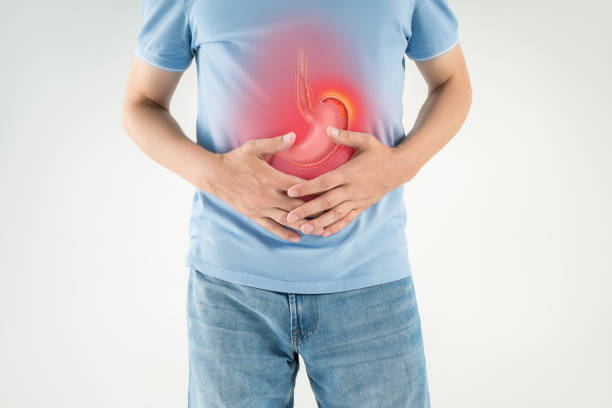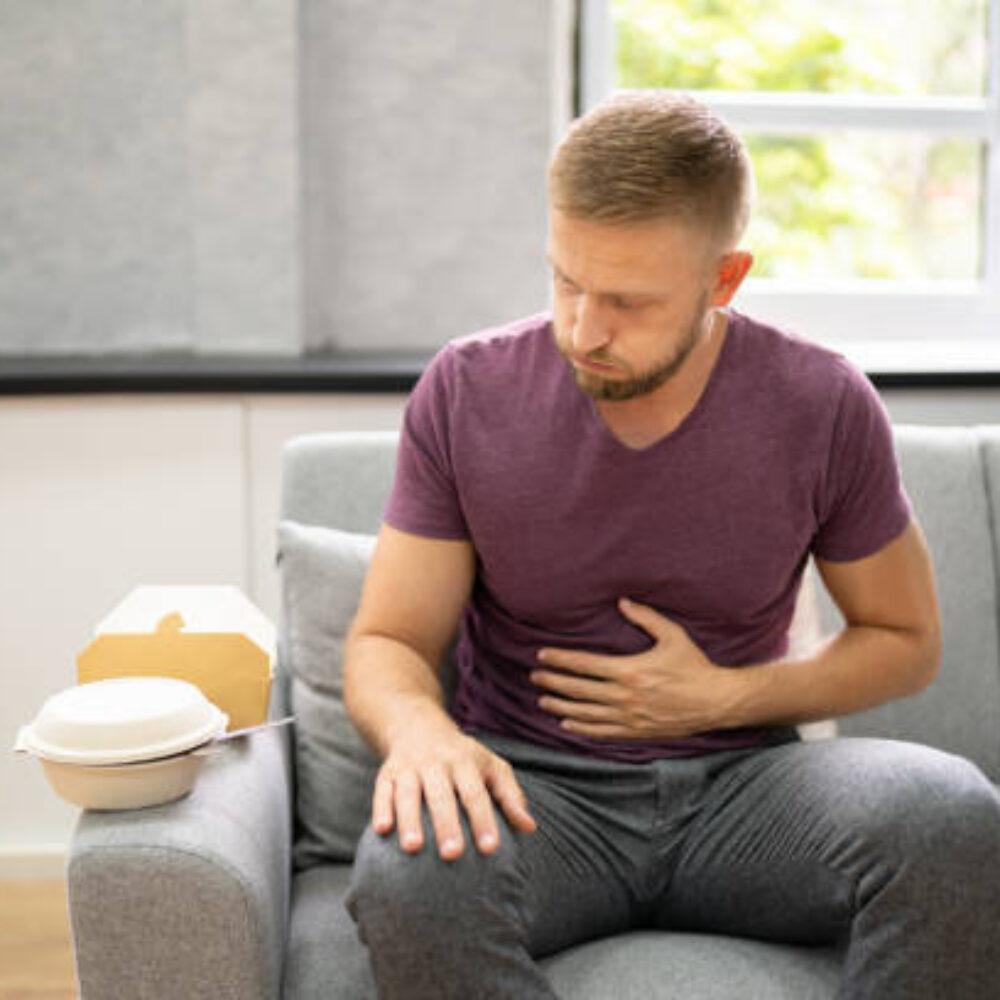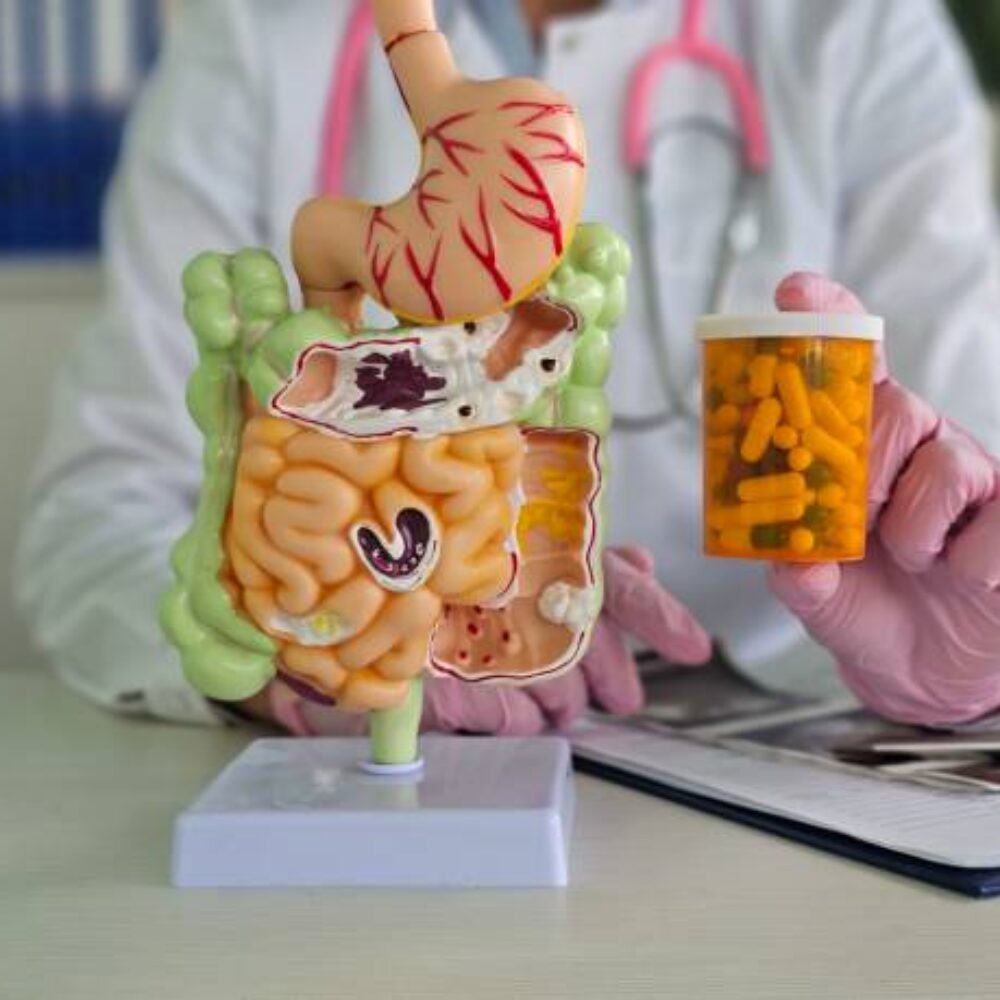Peptic ulcers disease (PUD) is a well-known digestive system disorder. Many people suffer from this issue. When acid levels rise in the stomach, it causes ulcers or inflammation.
If it occurs in the stomach, it is called a gastric ulcer, and if it happens in the small intestine, it is called a duodenal ulcer. However, another major cause of these lesions is Helicobacter pylori infection. These bacteria enter through contaminated food.

Many people suffer from ulcers due to irregular diet and lifestyle. Currently, 2.4 to 6.1 percent of people worldwide suffer from ulcers. Peptic ulcers or gastric ulcers can be easily cured if detected early.
Be cautious if there is burning or biting pain in the upper and middle part of the stomach immediately after eating.
Duodenal ulcers and gastric ulcers—these two types of ulcers are often referred to as peptic ulcers.
What are the symptoms of a stomach ulcer?
-
Be cautious if there is burning or biting pain in the upper and middle parts of the stomach immediately after eating.
-
In the case of gastric ulcers, the intensity of stomach pain increases two to three hours after eating food. If this often happens after eating, it may be a symptom of an ulcer.
-
Abdominal pain worsens immediately after eating; this could indicate an ulcer. Many times, prolonged fasting leads to unbearable stomach pain.
-
According to doctors, one of the most common symptoms of ulcers is severe pain in the upper part of the stomach. Ulcers can develop anywhere in the digestive tract, but most often occur in the stomach or small intestine, where the pain is felt.
-
Ulcer patients may experience decreased interest in food or a reduced appetite.
-
Indigestion is a common symptom of ulcers, which can upset your stomach. If you experience more stomach upset than usual and notice any of the mentioned symptoms, consult a doctor promptly.

Why do stomach ulcers occur?
-
Irregular eating habits and consumption of excessively oily or spicy foods. Smoking or drinking.
-
Regular use of various anti-inflammatory drugs. Stress and inadequate sleep.
-
Infection with the bacteria called Helicobacter pylori (H. pylori).
-
Long-term or high doses of non-steroidal anti-inflammatory drugs (NSAIDs) such as ibuprofen, naproxen, aceclofenac, or aspirin.
How to prevent this:
Once symptoms appear, seeking advice from a doctor is necessary. Making changes to diet and lifestyle can significantly improve your health. For this, it is essential to—
-
Eat soft and easily digestible foods. Avoid spicy and fried foods.
-
Prolonged fasting can lead to ulcers. Distribute daily food intake into six to eight smaller meals.
-
Avoid foods that cause gas in the stomach. Quit smoking and drinking alcohol. Avoid tea, coffee, or caffeinated foods. Non-dairy and lactose-free milk and yogurt can be consumed in small quantities.
-
Include fresh fruits and vegetables in your diet, such as apples, grapes, bananas, and pomegranates.
-
Avoid sour fruits on an empty stomach, such as oranges, lemons, and limes.
-
Among vegetables, include leafy greens, squash, pumpkin, papaya, cabbage, carrots, potatoes, and sweet potatoes in your diet.
-
Include eggs, river or sea fish, and skinless chicken in your daily diet.
-
Avoid processed foods, canned foods, and fried snacks.
-
Include grains like rice, soft khichuri, semolina, sago, and barley in your diet, avoiding sugary foods.
Some foods that are very beneficial for peptic ulcer patients are:
When you have problems like peptic ulcers, you should go to a doctor and follow their advice. Besides, you can eat some foods that will be beneficial for you.
Now, I will share some foods that can fight Helicobacter pylori bacteria, the cause of ulcers. These foods are:
Green tea: Green tea is very beneficial for ulcers. It contains high levels of a catechin called ECGC, which heals ulcers. Practice drinking green tea every morning and evening.
Garlic: Garlic contains antibacterial properties that can fight Helicobacter pylori bacteria and help to heal ulcers. However, do not overeat eat—2 to 3 cloves are enough in a day. If you experience any problems after eating garlic, avoid it.
Honey: Honey can cure peptic ulcers. Consuming honey can prevent the production of Helicobacter pylori bacteria in our stomachs. Eat one tablespoon of honey in the morning.
Oil: Some beneficial oils like ginger oil, peppermint oil, and olive oil can cure stomach ulcers.
Yogurt: Yogurt contains lactobacillus and acidophilus that can heal ulcers. Probiotics can grow good gut bacteria in our gut. Curd rice is also helpful for the gut.
Carrots: Carrots contain vitamin A, which can relieve peptic ulcers and is also beneficial for strengthening the stomach lining.
Apple: Practicing eating one apple on an empty stomach every morning can cure peptic ulcers and relieve gas, indigestion, and many other problems.
Radish: Radish contains fiber, which can improve your digestion. Radish can prevent stomach inflammation and remove gastric problems.
Blueberries and strawberries: These two fruits can relieve peptic ulcers. They contain antioxidants that can protect our stomachs from ulcers.
Broccoli: It contains a chemical called sulforaphane that kills the bacteria that cause ulcers.
Read this article for more details:
Link: Peptic Ulcer Disease



